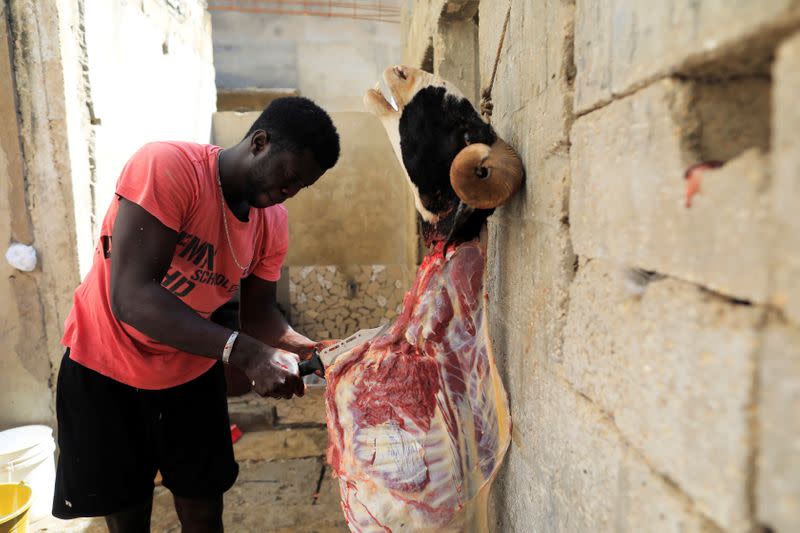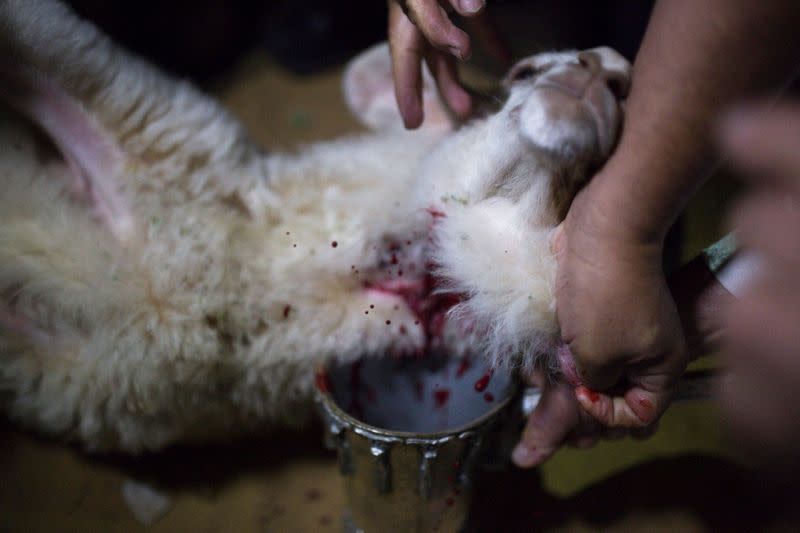EU top court upholds curb on animal slaughter, angering Jewish groups
BRUSSELS (Reuters) -The EU's top court on Thursday upheld a Belgian law requiring animals to be stunned before slaughter, rejecting challenges from Jewish and Muslim groups and opening the way for other countries to bring in similar restrictions.
Animals rights activists welcomed the ruling that limited some religious rites, but Israel's ambassador to Belgium and Luxembourg, Emmanuel Nahshon, called it "a catastrophic decision, a blow to Jewish life in Europe".
Jewish and Muslim associations had argued that the original decree made in the Belgian region of Flanders in 2017 had effectively outlawed their traditional ways of slaughtering animals.
They said their methods of cutting animals' throats with a sharp knife resulted in almost immediate death and that, traditionally, prior stunning was not permitted.
The Luxembourg-based court found that the Belgian decree was in line with EU law.
It ruled that requiring stunning before slaughter did limit the ability of believers to exercise their right to manifest their religion.
But the judges found it only limited one aspect of the tradition rather than prohibiting the whole practice, and that this limitation met a general EU objective of promoting animal welfare.
Belgium's constitutional court, which had asked the EU court to rule on the issue, is now bound by the decision.
Ambassador Nahshon took to Twitter to condemn the ruling, saying: "Apparently tolerance and diversity are empty words in the eyes of some Europeans."
Belgian Jewish umbrella association CCOJB said it would keep up its legal campaign against the decree.
"The European Union does not protect its religious minorities anymore," it added. "The Court of Justice of the European Union allows Member States to go as far as outlawing religious slaughter in an approved slaughterhouse."
Belgian campaign group Global Action in the Interest of Animals (GAIA) said it was delighted by the ruling that, it added, would allow other EU countries to introduce similar rules.
(Reporting by Philip Blenkinsop; Editing by Andrew Heavens)




